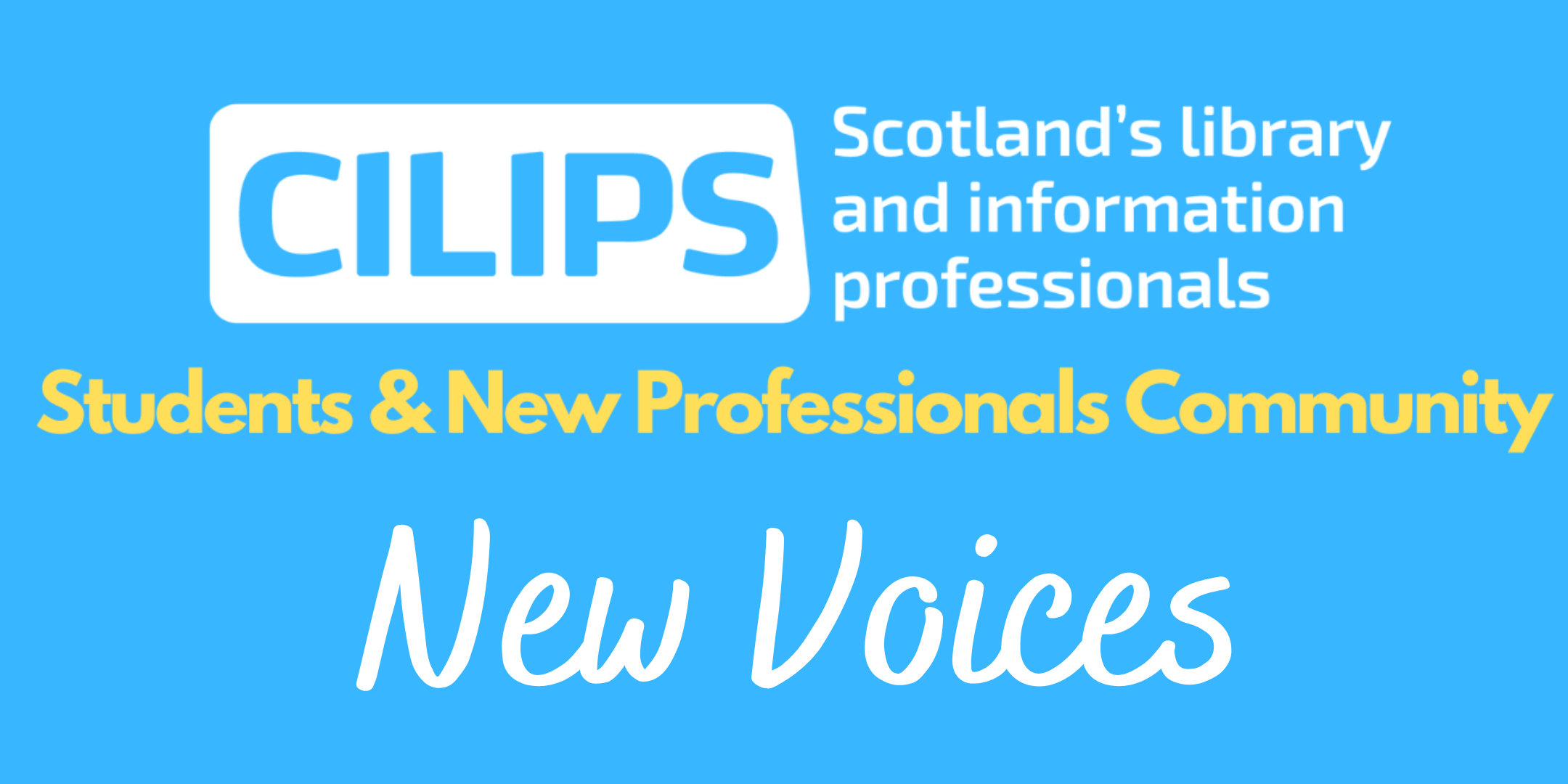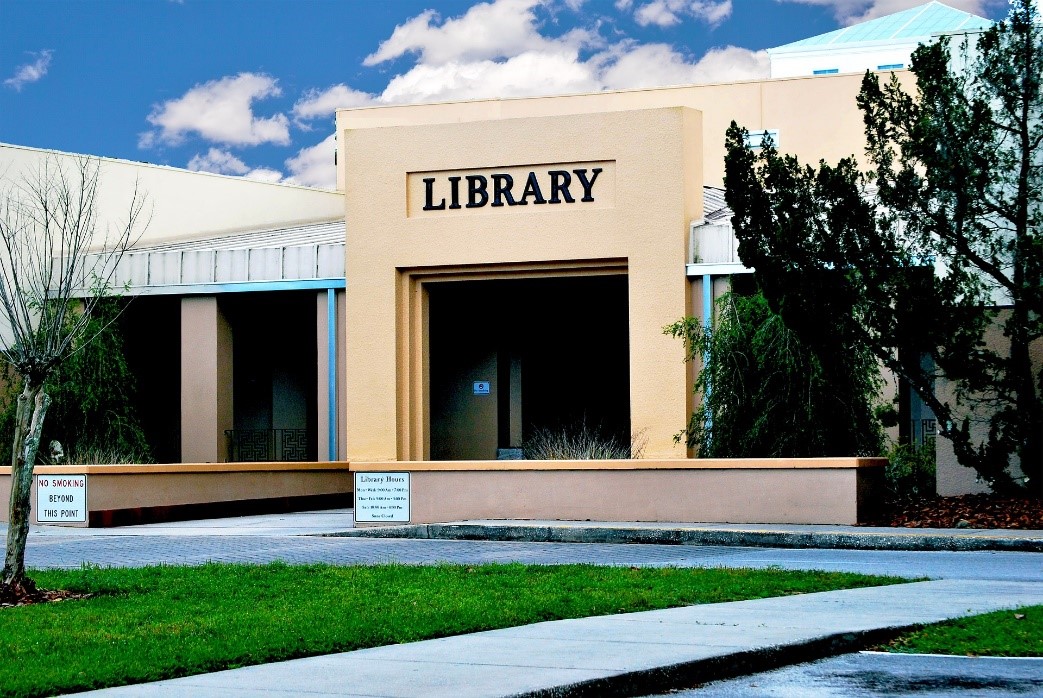New Voices RGU Student Series 2023 – Michelle Meyer
Category: Blog, New Voices, New Voices, RGU Student Series

In this 2023 Student Series for the New Voices blog, the CILIPS Students & New Professionals Community will be sharing the views of Robert Gordon University students from the MSc in Information and Library Studies. With special thanks to Dr Konstantina Martzoukou, Teaching Excellence Fellow and Associate Professor, for organising these fantastic contributions. This series will be shared by CILIPS Graduate Trainee Leah Higgins.
 Today, we are sharing the work of Michelle Meyer who is originally from South Africa but moved to Scotland 10 years ago. She is currently working as a senior library administrator for Aberdeenshire Council while pursuing the MSc Information & Library Studies at RGU.
Today, we are sharing the work of Michelle Meyer who is originally from South Africa but moved to Scotland 10 years ago. She is currently working as a senior library administrator for Aberdeenshire Council while pursuing the MSc Information & Library Studies at RGU.
Information literacy in public libraries for the unemployed – Can the librarian help?
Information and digital literacy skills have become crucial. CILIP (2018) defines information literacy as “the ability to think critically and make balanced judgements about any information we find and use. It empowers us as citizens to develop informed views and to engage fully with society”. Matteson and Gersch (2020) agree, stating that information literacy (IL) is “the ability to recognise the need for information, to effectively find information to meet that need, and to use information for some purpose or goal” (Matteson and Gersch 2020 p. 71). These information and digital skills are especially important for the unemployed and the information professional in public libraries is perfectly poised to help develop these skills, which will hopefully result in employment opportunities.
“Public libraries are social institutions that respond to community needs. This is especially evidenced in how libraries create and deliver services for targeted social populations” (Roy, Bolfing and Brzozowski 2010 p. 193). Public library users have a variety of information needs, skills and backgrounds and public libraries should be at the forefront of being able to assist their information seeking behaviour. According to Chowdhury (2010 p. 249) it “is commonly agreed that the process of information seeking begins with a user’s information need”. So, for the unemployed, public libraries should be able to assist them with the necessary skills to search and apply for jobs.
Julien and Hoffman (2008) believe that public libraries should be ‘proactive’ and supportive of lifelong learning to help “build citizenship skills in their customers, giving them an increased sense of community” (Julien and Hoffman 2008 p. 35). “If citizens are to participate fully in the digital age, in order to efficiently access, effectively evaluate, and appropriately use information to inform their decision making in all aspects of their lives, then these citizens require training in IL skills” (Julien and Hoffman 2008 p. 39).
When it comes to the unemployed, Everyday Life Information Seeking (ELIL) as described by Martzoukou and Sayyad Abdi (2017) is even more important to enable the unemployed to fully participate in everyday life as citizen. ELIL should include public librarians assisting the unemployed enhance their job-search skills. The information professional should have the necessary training and skills to meet the needs of the unemployed job searcher and the library buildings should have the computers and internet connectivity within them to allow for this need to be addressed.
Recent research of public libraries in Ohio found that “public librarians incorporate a range of IL concepts in their interactions with patrons, across a wide variety of expressed information needs, with most of the instruction directed toward helping patrons plan their information tasks, access information, and judge information” (Matteson an Gersch 2020 p. 71). This is something that the unemployed need: knowing where and how to access job advertisements, how to apply for jobs and how to navigate the evolving nature of job hunting.
Enhancing IL skills amongst their patrons in public library is acknowledged to be important, but there are practical challenges in addressing this:
- lack of staff training,
- time constraints dealing with a variety of library patrons and
- lack of resources within the public library setting.
These challenges should not deter the public librarian from addressing the information literacy needs of all their patrons, especially their unemployed patrons. Public librarians need the skills and confidence to help their patrons use, evaluate, and apply the information and digital information they need.
IL and especially practical digital literacy skills should be part of the essential service of information professionals in public libraries most particularly for those, like the unemployed, who have a special information literacy need.
Thank you to Michelle for this thought-provoking insight into how libraries can understand and respond to the information literacy needs of the community it supports.
Stay tuned for more in the 2023 New Voices RGU Student Series coming soon and be sure to check out the rest of CILIPS SNPC’s New Voices blog.
Bibliography
CHOWDHURY, G.G., 2010. Introduction to Modern Information Retrieval. 3rd ed. London: Facet.
CILIP, 2018. What is information literacy? [online]. London: CILIP. Available from: https://www.cilip.org.uk/news/421972/What-is-information-literacy.htm [Accessed 1 November 2022].
HALL, T.D., 2021. Information Redlining: The Urgency to Close the Digital Access and Literacy Divide and the Role of Libraries as Lead Interveners. Journal of Library Administration, 61(4), pp. 484-492.
JULIEN, H. and HOFFMAN, C., 2008. Information literacy training in Canada’s public libraries. The Library Quarterly, 78(1), pp. 19-41.
MARTZOUKOU, K. and ELLIOTT, J., 2016. The development of Digital Literacy and Inclusion Skills of Public Librarians. Communications in Information Literacy, 10(1), pp. 99-115.
MARTZOUKOU, K. and SAYYAD ABDI, E., 2017. Towards an everyday life information literacy mind-set: a review of literature. Journal of Documentation, 73(4), pp. 634-665.
MATTESON, M.L. and GERSCH, B., 2020. Information literacy instruction in public libraries. Journal of Information Literacy, 14(2), pp. 71-95.
ROY, L., BOLFING, T. and BRZOZOWSKI, B., 2010. Computer Classes for Job Seekers: LIS Students Team with Public Librarians to Extend Public Services. Public Library Quarterly, 29(3), pp. 193-209.
UNESCO, 2022. About Media and Information Literacy. [online]. Paris: UNESCO. Available from: https://www.unesco.org/en/communication-information/media-information-literacy/about [Accessed 2 November 2022].

